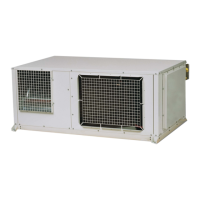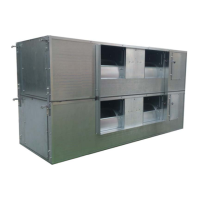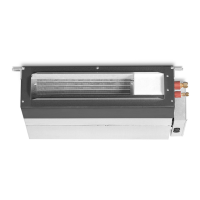1-124
TROUBLESHOOTING
Additional Information for “CHECK LIST ON COMPRESSOR”
Check
Item
Additional Information (Mechanism of Compressor Failure)
1 & 2 The liquid refrigerant return volume to the compressor is controlled by the discharge gas
temperature Td1 when only No.1 compressor is operating. If Td1 and Td2 are reversely
connected, the liquid refrigerant return volume will become small by detecting the temperatures
even if the actual discharge gas temperature is high. Therefore, this abnormal overheating
operation will result in insulation failure of the motor winding.
3, 4 & 5 Overcurrent control (operating frequency control) is performed by detecting current by the
current sensor.
In this case, winding insulation failure will occur, since control is not available in spite of actually
high current.
6 & 7 The current sensor checks phase and adjusts output electrical wave in addition to the above
mentioned items. If fault occurs, the output electrical wave becomes unstable giving stress to
the motor winding, resulting in winding insulation failure.
8 & 9 During a cooling operation, Pd is controlled by fan revolution of outdoor unit, and Td and SH
are controlled by MV of each indoor units or MVB for FX series.
During a heating operation, Td and SH are controlled by MV1 and MV2.
If expansion valves are incorrectly connected, correct control is not available, resulting in
compressor seizure depending on liquid refrigerant returning conditions or motor winding
insulation failure depending on overheating conditions.
10 If the refrigeration cycle and electrical system are incorrectly connected, abnormally low
suction pressure operation is maintained or abnormally high discharge pressure operation is
maintained, resulting in giving stress to the compressor, since their correct control is not
available.
11 ditto
12 The compressor may be locked due to the liquid return operation during the cooling operation.
13 In the case that the contacting resistance becomes big, voltage imbalance among each phase
will cause abnormal overcurrent.
14 In this case, overcurrent will occur, efficiency will decrease or the motor winding will be
excessively heated.
15 In the case, it will result in motor burning or compressor seizure.

